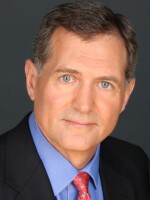STEVE INSKEEP, HOST:
How do members of the U.S. intelligence community do their secretive work during a pandemic? These are people who can't exactly work from home. NPR national security correspondent Greg Myre joins us. Hey there, Greg.
GREG MYRE, BYLINE: Good morning, Steve.
INSKEEP: I guess we should mention you're working at home. So that's good. But what makes it so hard for the CIA to do that?
MYRE: Well, they sort of have a built-in disadvantage. At the CIA and the other intelligence agencies, they can't take classified papers out of the office. They can't use home phones or computers. They can't have a meeting on Zoom, all for security reasons...
INSKEEP: (Laughter).
MYRE: ...And they can't use classified information. So a small number do work at the office, keeping their distance, avoiding meetings. And they sort of work in rotations and shifts. Some work, others stay home with a very strict mandate to stay healthy. And then they rotate in and out. But it just means fewer people working.
INSKEEP: So that's at headquarters. But I'm thinking about somebody in the field in some other country. And, I mean, how do you whisper a secret to someone or get them to hand you a document while staying six feet away from them at all times?
MYRE: Well, exactly. So I spoke with Paul Kolbe. He's a former CIA officer who served in Moscow and other places. He now runs the Intelligence Project at Harvard's Belfer Center. And he said, this is very hard for CIA officers to do what they normally do, which is meet sources, build contacts, recruit spies. A lot of time, meetings are held in third countries. So the travel shutdown is harming that.
But in contrast to the CIA, which deals in human intelligence a lot of the time, the National Security Agency kind of loves it when people are communicating by phone or computers or virtual meetings in other countries. They're focused on electronic surveillance. And this creates lots of opportunities for them.
INSKEEP: Well, other than just doing less work, as you mentioned, has the intelligence community fundamentally changed how they work?
MYRE: Well, I keep hearing about this need to look at the cascade effect. So we have this health crisis that's still in motion. But so far, the impact has been mostly on the rich countries in Asia and Europe and the U.S. It's starting to hit developing countries. So there's a need to look at, what kind of impact will it have there? What kind of economic impact will it have in these countries? Could this also lead to political turbulence?
You know, so far, the pandemic has tended to push crowds and protesters off the streets. But this may not last. We've seen the effort to impose lockdowns in some Muslim countries, which are now going into Ramadan. Pakistan, in particular, is having an issue with this. So this is just one thing to be looking at in the coming weeks.
INSKEEP: Within the United States, we've been asking, shouldn't we have had more personal protective equipment on hand? Shouldn't we have had more ventilators? Are people in the intelligence community asking questions about being prepared for this kind of rare event?
MYRE: Yeah. And they're talking about the need to be prepared for these extremely rare events, which we sometimes call black swans. You know, look at the biggest shocks in the past 20 years. And they really weren't traditional military threats or national security threats - this pandemic, the Russian interference in the 2016 election, the global financial meltdown in 2008, even the 9/11 attacks. Here's Paul Kolbe, the former CIA officer.
PAUL KOLBE: Black swans happen. And then, we should be thinking about other things that haven't happened, but which nonetheless could. And we shouldn't assume that they won't happen because they haven't - so things like nuclear conflict, the development of weapons of mass destruction by terrorist organizations.
MYRE: They really talk about this being a global challenge. And it will require a global solution, something you don't often hear from intelligence agencies.
INSKEEP: NPR's Greg Myre. Thanks.
MYRE: My pleasure. Transcript provided by NPR, Copyright NPR.


